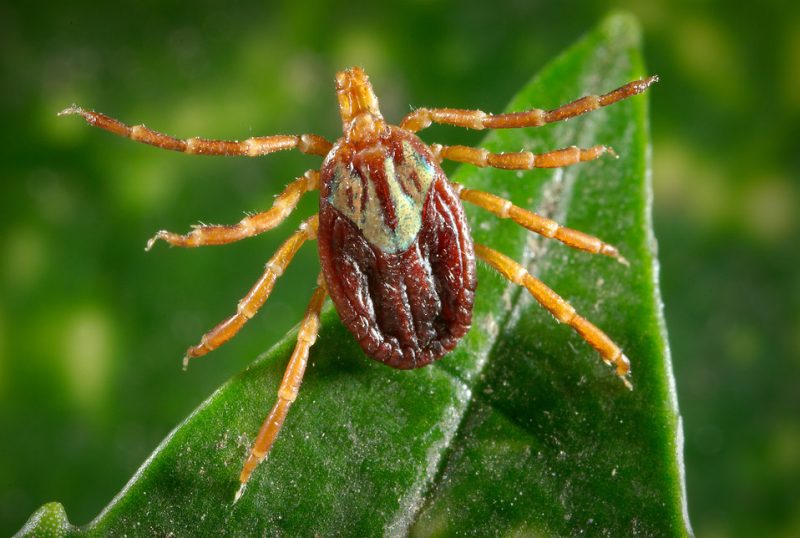Community
Officials warn as Massachusetts residents begin getting tick-borne illnesses

DIGHTON — The Dighton Board of Health recommends that residents be mindful of ticks while taking part in spring and summer outdoor activities, as tick season has arrived.
At this time of year, healthcare visits related to ticks begin to increase and will remain elevated throughout the summer. As of June 8, there have been two confirmed human cases of tick-borne diseases (anaplasmosis) in Dighton.
Ticks are tiny bugs most likely found in shady, damp, brushy, wooded, or grassy areas (especially in tall grass), including backyards. The most common ticks are black-legged (deer) ticks and dog ticks which are found throughout Massachusetts and may spread different disease-causing germs when they bite.
The most common tick-borne diseases in Massachusetts are Lyme disease, babesiosis and anaplasmosis. Other diseases that are rarer, but still occur, are tularemia, Rocky Mountain spotted fever, Borrelia miyamotoi and Powassan virus.
“Everyone should be vigilant about checking for ticks on themselves, their children and their pets throughout the spring and summer months,” said Dighton Board of Health Chairman Thomas Pires. “Our part of the state is a hotbed for tick-borne illness and taking the time to check is one of the best ways to prevent contracting these terrible diseases.”
Some of the favorite places ticks like to attach themselves on the body include areas between the toes, back of the knees, groin, armpits and neck, along the hairline, and behind the ears. Ticks are tiny and may appear as “freckles” on the skin.
Dighton health officials say finding a tick is no cause for panic. A pair of fine point tweezers can be used to grip the tick as close to the skin as possible and pulled straight out with steady pressure.
People should call their healthcare provider if they have been bitten by a black-legged tick, or have a rash or symptoms such as fever, headache, fatigue, or sore and aching muscles, especially after a tick bite.
Health officials recommend appropriate bug repellents on skin or clothing and remind parents to never use insect repellents on infants.
“Tick-borne illnesses can be severe and taking steps to avoid tick bites is important,” said State Epidemiologist Catherine Brown. “The best ways to protect yourself are to use a tick repellent with permethrin or DEET when you are outdoors, do tick checks on yourself, your children and your pets every day, and remove any attached ticks promptly.”
To prevent contact with ticks and avoid tick-borne illnesses, the Dighton Board of Health recommends the following tips provided by the Centers for Disease Control and Prevention (CDC):
Avoid Direct Contact with Ticks
-Avoid wooded and brushy areas with high grass and leaf litter — ticks wait in vegetation and attack from below.
-Keep a tidy yard.
-Walk in the center of trails.
-Use repellent that contains 20 percent or more DEET, picaridin or IR3535 on exposed skin, being sure to follow product instructions.
Find and Remove Ticks from Your Body
-Bathe or shower as soon as possible after coming indoors to wash off and more easily find ticks that may be crawling on you.
-Ticks can come into the home on clothing and pets, then attach to a person later, so carefully examine pets, coats and gear.
-You should not apply kerosene, petroleum jelly, nail polish, or a hot match tip to remove the tick. These measures are not effective and may result in injury.
-Circle the calendar date and note where on the body the tick was removed. You may want to save the tick for identification.
-Your physician may choose to treat you following a deer tick bite. Notify your healthcare provider if you have been bitten by a deer tick or if you develop a rash or other signs of illness following a tick bite.
Common Symptoms of Tick-Related Illnesses
If you have been bitten by a tick, the most common symptoms of tick-related illnesses are:
-Fever/chills: With all tick-borne diseases, patients can experience fever at varying degrees and time of onset.
-Aches and pains: Tick-borne disease symptoms include headache, fatigue and muscle aches. With Lyme disease, patients may also experience joint pain. The severity and time of onset of these symptoms can depend on the disease and the patient’s personal tolerance level.
-Rash: Tick-borne illnesses like Lyme disease, southern tick-associated rash illness (STARI), Rocky Mountain spotted fever (RMSF), ehrlichiosis, and tularemia can all result in distinctive rashes.
Tick-borne diseases can result in mild symptoms to severe infections. Although treated with antibiotics, these diseases can be difficult for physicians to diagnose. Early recognition and treatment of these infections decreases the risk of serious complications. See your doctor immediately if you have been bitten by a tick and experience any of the symptoms described here.





You must be logged in to post a comment Login